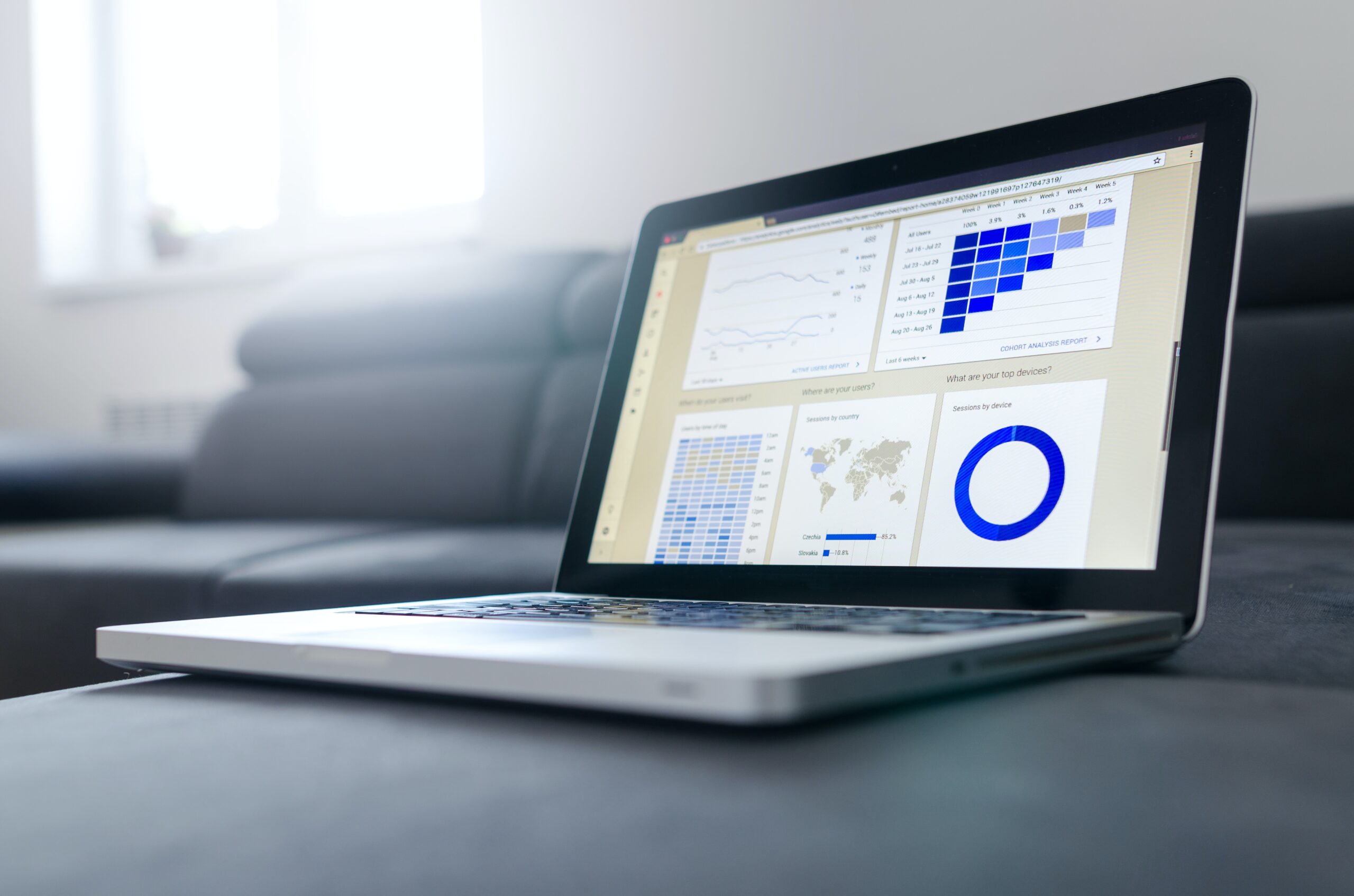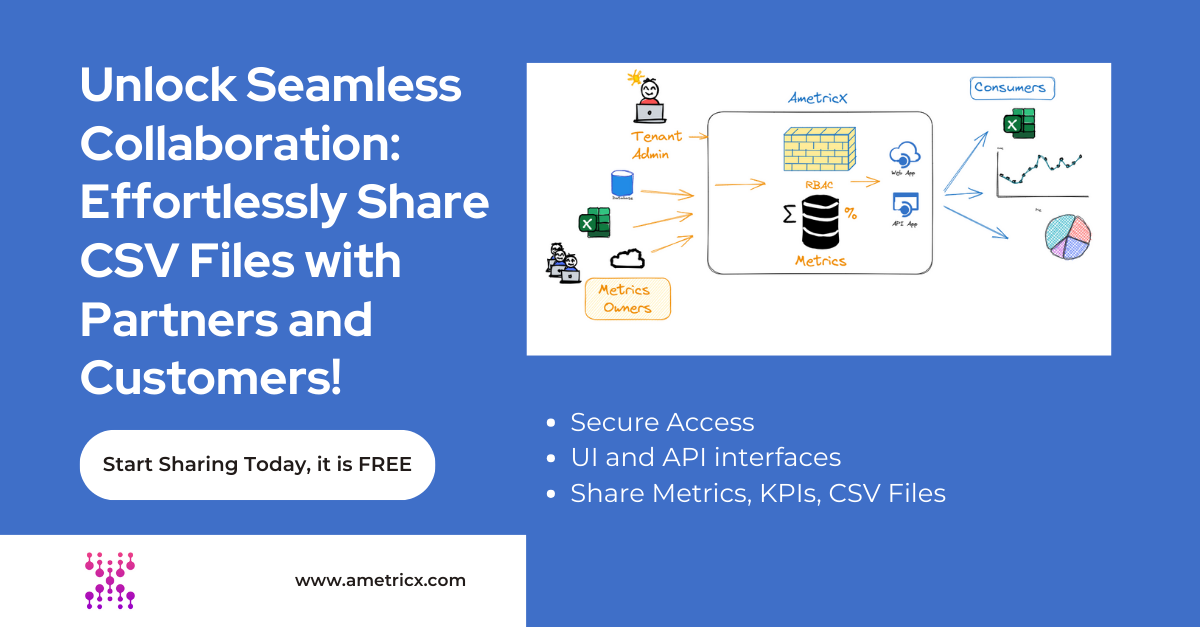In today’s data-driven world, information is power. Unlocking the potential of data has become increasingly essential for businesses looking to gain a competitive edge. Enter data marketplaces and exchanges, revolutionizing the way organizations access, analyze, and monetize data.
Data marketplaces provide a platform for companies to buy and sell data sets, fostering a vibrant ecosystem of information exchange. These platforms make it easier for businesses to discover and leverage valuable data sources, saving time and resources in the process. Meanwhile, data exchanges act as intermediaries, facilitating secure and seamless transactions between data providers and consumers.
As the demand for data continues to grow, the variety of data marketplaces and exchanges is expanding rapidly. From specialized platforms focusing on specific industries to general-purpose exchanges, businesses now have a plethora of options to choose from.
With data marketplaces and exchanges, companies can tap into the vast potential of data to enhance decision-making, drive innovation, and shape customer experiences. However, navigating this ever-evolving landscape requires a strategic approach and a deep understanding of the risks and benefits.
In this article, we will explore the rise of data marketplaces and exchanges, shedding light on their impact on various industries and highlighting best practices for unlocking the power of data. Join us as we delve into this fascinating world of data-driven opportunities.
The role of data in business decision-making
Data has always played a crucial role in business decision-making, but the sheer volume and complexity of data available today have created new challenges and opportunities. From customer preferences and market trends to operational efficiency and risk management, data holds valuable insights that can drive strategic initiatives and improve overall business performance.
Traditionally, companies relied on internal data sources or commissioned expensive market research studies to gather the information they needed. However, this approach often resulted in limited access to data and slower decision-making processes.
Data marketplaces and exchanges have changed the game by offering a vast array of data sets from various sources in a centralized platform. These platforms enable businesses to tap into a global network of data providers, offering a wealth of information that was previously unavailable or hard to obtain. By leveraging these data marketplaces, companies can make data-driven decisions faster, more accurately, and at a lower cost.
Data marketplaces and exchanges also provide access to data sets that are beyond a company’s internal capabilities. For example, a retail company can access data from weather sensors to optimize inventory management based on weather patterns. This external data can complement internal data sources and provide a more comprehensive understanding of customer behavior, market dynamics, and potential risks.
Furthermore, data marketplaces enable businesses to explore new revenue streams by monetizing their own data assets. Companies can sell anonymized and aggregated data sets to other organizations, creating a new source of income and fostering a data-driven ecosystem where data becomes a valuable commodity.
Benefits of data marketplaces and exchanges
Data marketplaces and exchanges offer a wide range of benefits to businesses of all sizes and industries. Here are some key advantages:
1. Increased access to data
Data marketplaces and exchanges provide a one-stop-shop for accessing a vast array of data sets. Instead of spending time and resources searching for relevant data sources, businesses can easily browse through catalogs and find the information they need. This streamlined process saves time and enables faster decision-making.
2. Cost-effective data acquisition
Traditional data acquisition methods, such as market research studies or building in-house data collection capabilities, can be expensive. In contrast, data marketplaces and exchanges offer data sets at a fraction of the cost, making it more accessible to companies with limited budgets. This affordability allows smaller businesses to compete on a level playing field and leverage data-driven insights to drive growth.
3. Diverse data sources
Data marketplaces and exchanges bring together data sets from various sources, including public, private, and third-party providers. This diversity of data sources allows businesses to gain a more comprehensive understanding of their target audience, market trends, and industry dynamics. By combining internal and external data, companies can uncover hidden patterns, identify emerging opportunities, and make informed decisions.
4. Rapid innovation and experimentation
The availability of a wide range of data sets on data marketplaces enables businesses to experiment with new ideas and innovations. Companies can access data from different industries or geographies to gain fresh insights and inspiration. This cross-pollination of ideas can spark creativity, drive innovation, and help businesses stay ahead of the competition.
5. Monetization of data assets
Data marketplaces and exchanges not only provide access to data but also offer an opportunity for businesses to monetize their own data assets. By selling anonymized and aggregated data sets, companies can generate additional revenue streams and create a new business model around data. This monetization potential incentivizes companies to invest in data collection, quality assurance, and data governance, leading to improved data practices and enhanced data value.
Key players in the data marketplace industry
The rise of data marketplaces and exchanges has given birth to a vibrant ecosystem of players, each contributing to the growth and development of this industry. Here are some key players in the data marketplace landscape:
1. Data providers
Data providers are organizations or individuals who generate, collect, and curate data sets. These can range from government agencies and research institutions to private companies and individuals. Data providers play a crucial role in the data marketplace ecosystem by making their data available for sale or exchange. They are responsible for ensuring data quality, privacy protection, and compliance with relevant regulations.
2. Data marketplaces
Data marketplaces are platforms that facilitate the buying and selling of data sets. They act as intermediaries, connecting data providers with data consumers. Data marketplaces offer a range of features, including data cataloging, search and discovery, data licensing and pricing, data governance, and secure data transactions. Some popular data marketplace platforms include Kaggle, Data.gov, and AWS Data Exchange.
3. Data consumers
Data consumers are organizations or individuals who purchase or utilize data sets from data marketplaces. They can be businesses looking to gain insights for decision-making, researchers seeking data for analysis, or developers building data-driven applications. Data consumers benefit from the convenience and cost-effectiveness of accessing a wide range of data sets from a centralized platform.
4. Data analytics and AI companies
Data analytics and AI companies play a crucial role in the data marketplace industry by providing tools and technologies to process, analyze, and derive insights from data. These companies develop algorithms, machine learning models, and data visualization tools that enable businesses to make sense of the vast amount of data available on data marketplaces. They help businesses extract value from data and turn it into actionable insights.
5. Data regulators and industry bodies
As the data marketplace industry evolves, data regulators and industry bodies play a vital role in ensuring data privacy, security, and ethical data practices. They establish guidelines, standards, and regulations to protect data subjects’ rights, prevent data breaches, and promote responsible data usage. These entities contribute to building trust and confidence in the data marketplace ecosystem.
How data marketplaces and exchanges work
Data marketplaces and exchanges operate on a simple yet powerful model: connecting data providers and data consumers. Here is a high-level overview of how data marketplaces and exchanges work:
1. Data cataloging and listing
Data providers catalog and list their data sets on the marketplace platform. This involves providing metadata, such as data description, format, size, licensing terms, and pricing. Data marketplaces often provide tools and templates to help data providers create standardized listings and ensure data discoverability.
2. Data search and discovery
Data consumers browse through the marketplace catalog and search for relevant data sets based on their needs. They can use filters, keywords, or specific criteria to narrow down their search. Data marketplaces leverage search algorithms and recommendation systems to enhance data discoverability and help consumers find the most relevant data sets.
3. Data licensing and pricing
Once a data consumer identifies a suitable data set, they can review the licensing terms and pricing associated with it. Data marketplaces offer different licensing options, such as one-time purchase, subscription-based access, or pay-per-use models. Pricing may vary based on factors like data quality, exclusivity, and usage rights.
4. Data acquisition and delivery
After selecting a data set, the data consumer proceeds to acquire the data. The marketplace platform facilitates secure data transactions, ensuring that the data is delivered to the consumer in a reliable and efficient manner. This may involve downloading the data directly or accessing it through APIs, depending on the data format and delivery mechanism.
5. Data integration and analysis
Once the data is acquired, the data consumer can integrate it into their existing systems or analytics platforms. This may involve data transformation, cleaning, and merging with internal data sources. Data analytics and AI technologies can be applied to extract insights, discover patterns, and generate actionable intelligence from the acquired data.
6. Data governance and compliance
Data marketplaces prioritize data governance and compliance to protect the rights and interests of both data providers and data consumers. They implement measures to ensure data quality, privacy, security, and compliance with relevant regulations, such as the General Data Protection Regulation (GDPR) or industry-specific standards. This includes data anonymization, encryption, access controls, and audit trails.
Challenges and risks of data marketplaces and exchanges
While data marketplaces and exchanges offer numerous benefits, they also present challenges and risks that businesses need to be aware of. Here are some key challenges to consider:
1. Data quality and reliability
Ensuring data quality and reliability is a significant challenge in the data marketplace industry. Data providers come from diverse backgrounds, and the quality of their data sets may vary. Businesses need to carefully evaluate the data they acquire and assess its suitability for their specific use cases. Data marketplaces can mitigate this challenge by implementing data quality assurance mechanisms and providing user-generated reviews and ratings.
2. Data privacy and security
Data privacy and security are paramount concerns in the data marketplace ecosystem. Data sets may contain sensitive or personally identifiable information that must be handled with utmost care. Data marketplaces must implement robust security measures, such as encryption, access controls, and secure data transmission, to protect against data breaches and unauthorized access. Compliance with data protection regulations is essential to maintain trust and credibility.
3. Data governance and compliance
Data governance and compliance are complex issues in the data marketplace industry due to the diverse nature of data sources and the global reach of these platforms. Data marketplaces need to establish clear policies and guidelines for data providers and consumers, ensuring that data usage is ethical, legal, and compliant with relevant regulations. They must also provide transparency regarding data provenance, licensing, and usage restrictions.
4. Data integration and interoperability
Integrating data from multiple sources and ensuring interoperability can be challenging for businesses. Data sets obtained from different data marketplaces may have different formats, structures, or data models. Companies need to invest in data integration technologies and ensure compatibility with their existing systems to derive value from diverse data sources efficiently.
5. Intellectual property rights and ownership
Intellectual property rights and ownership can be complex issues when dealing with data marketplaces. Data providers may have ownership rights over the data they sell, and data consumers must respect these rights. Data marketplaces can help address this challenge by facilitating clear licensing agreements, defining usage rights, and providing mechanisms for dispute resolution.
Best practices for using data marketplaces and exchanges
To maximize the benefits of data marketplaces and exchanges, businesses should consider the following best practices:
1. Define clear objectives and use cases
Before diving into data marketplaces, businesses should clearly define their objectives and use cases. Identifying specific questions to be answered or problems to be solved helps focus the search for relevant data sets. This clarity ensures that the acquired data aligns with the business’s strategic goals and provides actionable insights.
2. Evaluate data quality and reliability
Data quality is critical for making accurate and reliable decisions. Businesses should carefully evaluate the quality and reliability of data sets offered on data marketplaces before making a purchase. This evaluation may involve assessing the data provider’s reputation, reviewing user feedback, and understanding the data collection and processing methodologies.
3. Ensure data privacy and security
Data privacy and security should be a top priority when using data marketplaces. Organizations must ensure that the data they acquire complies with relevant privacy regulations, such as the GDPR. They should also assess the security measures implemented by data marketplaces to protect against data breaches and unauthorized access.
4. Establish data governance and compliance frameworks
Data governance and compliance frameworks help organizations manage data effectively and ensure ethical and legal data practices. It is essential to establish clear policies and guidelines for data acquisition, storage, usage, and sharing. This includes defining roles and responsibilities, establishing data quality standards, and implementing data protection measures.
5. Invest in data integration and analysis capabilities
To derive maximum value from data marketplaces, businesses need robust data integration and analysis capabilities. This may involve investing in data integration technologies, such as ETL (Extract, Transform, Load) tools or data virtualization platforms. Additionally, organizations should develop data analytics and AI capabilities to extract insights and generate actionable intelligence from the acquired data.
6. Foster collaboration and knowledge sharing
Data marketplaces thrive on collaboration and knowledge sharing between data providers and consumers. Businesses should actively engage with the data marketplace community, participate in discussions, and share their own insights and experiences. This collaboration fosters innovation, builds relationships, and opens up new opportunities for collaboration and partnership.
Case studies of successful data marketplace implementations
Several organizations have successfully leveraged data marketplaces and exchanges to drive innovation and achieve business objectives. Let’s explore two case studies that highlight the impact of data marketplaces:
1. Zillow: Revolutionizing the real estate industry
Zillow, a leading online real estate marketplace, has been at the forefront of leveraging data to transform the way people buy and sell homes. By utilizing data from various sources, including public records, tax assessments, and user-generated data, Zillow provides accurate home value estimates, market trends, and neighborhood insights to its users. The data-driven approach has revolutionized the real estate industry, empowering buyers and sellers with actionable information and improving the overall home buying experience.
2. Uber: Optimizing transportation with data
Uber, the ride-hailing giant, relies heavily on data to optimize its operations and provide a seamless experience to its customers. By analyzing data on traffic patterns, demand and supply dynamics, and user preferences, Uber can predict rider demand, allocate drivers efficiently, and optimize routes in real-time. This data-driven approach enables Uber to reduce wait times, increase driver utilization, and improve overall customer satisfaction.
These case studies highlight the transformative power of data marketplaces and exchanges in driving innovation, enhancing customer experiences, and achieving operational excellence.
Future trends in the data marketplace industry
The data marketplace industry is evolving rapidly, driven by advancements in technology, increasing demand for data, and changing regulatory landscapes. Here are some future trends to watch out for:
1. Blockchain-enabled data marketplaces
Blockchain technology has the potential to revolutionize data marketplaces by providing enhanced security, transparency, and trust. Blockchain-enabled marketplaces can ensure data integrity, enable secure transactions, and facilitate data provenance verification. Blockchain also allows data providers to retain control over their data and monetize it directly, without relying on intermediaries.
2. AI-powered data marketplaces
Artificial Intelligence (AI) and machine learning technologies are transforming data marketplaces by enhancing data discovery, recommendation, and analytics capabilities. AI-powered marketplaces










